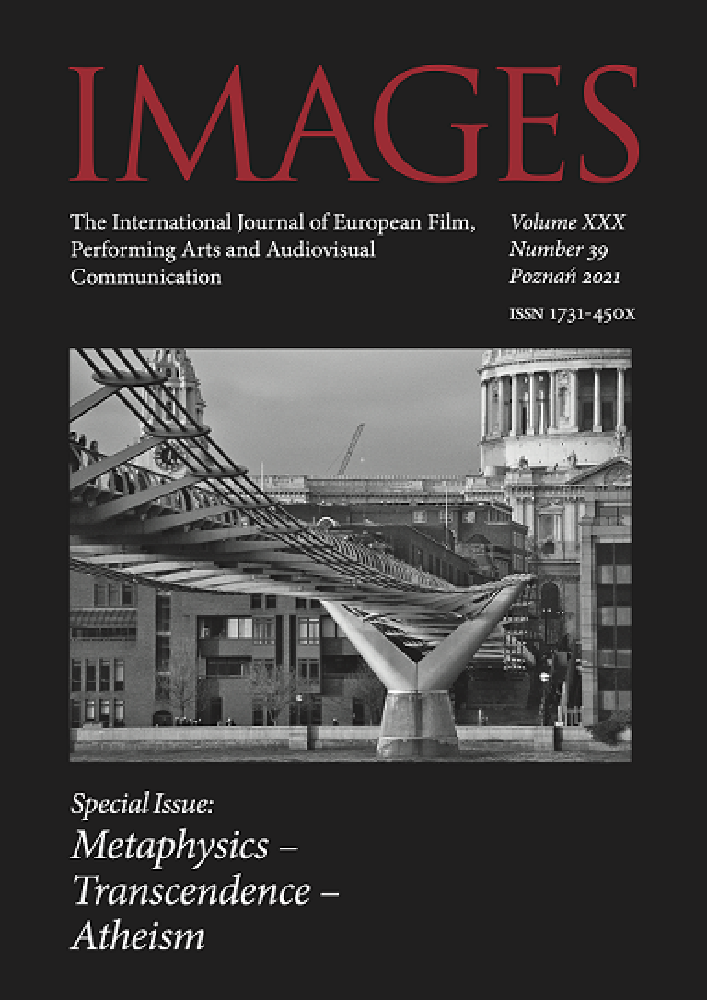Abstrakt
The article aims to examine the relationship between two texts: Loveless (Нелюбовь, 2017), the latest of Andrey Zvyagintsev’s feature films, and The Heart of a Dog (Собачье сердце, 1925), one of Mikhail Bulgakov’s most popular short stories. The studies are focused on finding the parallels showing the work of cultural memory, which is understood – following Aleida Assmann’s and Astrid Erll’s findings – as the process of continuous remediation, retranscription and negotiation of essential ideas in the space of culture. Consequently, the author is not interested in treating Zvyagintsev’s text as the illustration of Bulgakov’s plot, but rather in discussing certain topics which are deposited in Russian literature and constantly reused and reinterpreted, creating the framework for communication across ‘the abyss of time’. The analogies between the selected texts are sought in the area of their structure, some thematic overlapping, the authors’ approach to the issue of the authoritarian ideology and the role of technology as well as in exploring the function of space as one of the narrative mechanisms, in particular in the context of the category of home and anti-home.
Bibliografia
Andrey Zvyagintsev: Strakh – eto yazyk d’yavola, <https://www.youtube.com/watch?v=QUOnVCsY8q4>, accessed: 12.10.2020
Andriej Zwiagincew, reżyser „Niemiłości”: „Dzięki takim bohaterom mogę spojrzeć w głąb rosyjskiej chorej duszy”. Z reżyserem Andriejem Zwiagincewem rozmawia Mariola Wiktor, „Gazeta Wyborcza” 2018, <https://www.wysokieobcasy.pl/wysokie-obcasy/7,157211,22941956,andriej-zwiagincew-rezyser-niemilosci-dzieki-takim-bohaterom.html>, accessed: 12.10.2020
Assmann A., Canon and archive, [in:] Cultural Memory Studies: An International and Interdisciplinary Handbook, eds. A. Erll, A. Nünning, Berlin – New York 2008, pp. 97–109
Bradshaw P., ‘Loveless’ review - eerie thriller of hypnotic, mysterious intensity from ‘Leviathan’ director, 17.05.2017, <https://www.theguardian.com/film/2017/may/17/loveless-review-leviathan-director-andrei-zvyagintsev-cannes-2017>, accessed: 12.10.2020
Bulgakov M., The Heart of a Dog, trans. M. Glenny, <http://www.masterandmargarita.eu>, accessed: 12.10.2010
Dolin A., ‘Nelyubov’: fil’m o pustote Anton Dolin posmotrel v Kannakh novuyu kartinu Andreya Zvyagintseva, 18.05.2017, <https://meduza.io/feature/2017/05/18/nelyubov-film-o-pustote>, accessed: 12.10.2020
Dolin A., Pustoye mesto. ‘Nelyubov’, Rezhisser Andrey Zvyagintsev, “Iskusstvo Kino” 2017, 4, <https://old.kinoart.ru/archive/2017/04/pustoe-mesto-nelyubov-rezhisser-andrej-zvyagintsev>, accessed: 12.10.2020
Gleiberman O., Cannes Film Review: ‘Loveless’, “Variety” 2017, <https://variety.com/2017/film/news/loveless-review-andrey-zvyagintsev-1202430108/>, accessed: 12.10.2020
Kohn E., Cannes Review: In ‘Loveless’ Russia is the place where families go to die, “IndieWire” 2017, <https://www.indiewire.com/2017/05/loveless-review-andrey-zyvagintsev-cannes-1201818855/>, accessed: 12.10.2020
Kolotaev V., Ulybina E., Khudozhestvennoye prostranstvo fil’ma Andreya Zvyagintseva ‘Nelyubov’ kak sreda formirovaniya identichnosti, “Articult” 2017, no. 4 (28), <http://articult.rsuh.ru/eng/issue-28-2017-4/articult-28-4-2017-kolotaev-ulybina.php>, accessed: 12.10.2020, DOI: 10.28995/2227-6165-2017-4-83-94
Lachmann R., Mnemonic and intertextual aspects of literature, [in:] Cultural Memory Studies: An International and Interdisciplinary Handbook, eds. A. Erll, A. Nünning, Berlin – New York 2008, pp. 301–310
Lane A., “Loveless” and “Permission”, “The New Yorker” 2018, <https://www.newyorker.com/magazine/2018/02/12/loveless-and-permission>, accessed: 12.10.2020
Litvinenko K., Bozhestvennaya ‘Nelyubov’, <http://az-film.com/ru/Publications/314-Bozhestvennaja-emNeljubovem.html>, accessed: 12.10.2020
Lotman J., Uspenskij B., The Semiotics of Russian Culture, ed. A. Shukman, Ann Arbor 1984
Lotman Y., O russkoy literature: Stat’i i issledovaniya (1958–1993): Istoriya russkoy prozy. Teoriya literatury, Sankt-Peterburg 2005
Osmukhina O., Korotkova Y., Khronotop kvartiry v maloy proze M. A. Bulgakova, “Filologicheskiye nauki” 2016, 12, pp. 35–38
Pavan B., Nelyubov (Loveless), portrait of a dehumanised society, 2017, <http://az-film.com/en/Publications/290-Nelyubov-Loveless-portrait-of-a-dehumanised-society.html>, accessed: 12.10.2020
Pond S., ‘Loveless’ Cannes Review: Gripping Russian Drama Delivers Gut Punch to Launch Competition, 2017, “The Wrap”, <https://www.thewrap.com/loveless-cannes-review-gripping-russian-drama-delivers-gut-punch-launch-competition/>, accessed: 12.10.2020
Propp V., Istoricheskiye korni volshebnoy skazki, Мoskva 2002, pp. 90–106.
Rybin V., Smysl tvorchestva Andreya Zvyagintseva: opyt tipologicheskogo issledovaniya, Vestnik Permskogo Universiteta, 2019, no. 3, p. 309. DOI: 10.17072/2078-7898/2019-3-305-319
Scharres B., Cannes 2017: The Fest Opens with “Ismael’s Ghosts”, “Loveless” 2017, <https://www.rogerebert.com/festivals/cannes-2017-the-fest-opens-with-ismaels-ghost-loveless>, accessed: 12.10.2020
Sobolewski T., Znakomita “Niemiłość” Zwiagincewa: dostajesz czas na doznanie pustki i wypełnienie jej, “Gazeta Wyborcza” 2018, <https://wyborcza.pl/7,143363,22960972,niemilosc-wchodzi-do-kin-dostajesz-czas-na-doznanie-pustki.html>, accessed: 12.10.2020
Solntseva A., Obshchestvo broshennykh detey, “Gazeta.Ru” 2017, <https://www.gazeta.ru/comments/column/solnceva/10711961.shtml>, accessed: 12.10.2020
Tatarska A., Andriej Zwiagincew o ‘Niemiłości’: Zrobiliśmy film, który widza boli i porusza niewygodne emocje. Interview, “Gazeta Wyborcza” 2018, <https://wyborcza.pl/7,101707,22971773,andriej-zwiagincew-o-niemilosci-zrobilismy-film-ktory-widza.html>, accessed: 12.10.2020
Licencja
Prawa autorskie (c) 2021 Beata Waligórska-Olejniczak

Utwór dostępny jest na licencji Creative Commons Uznanie autorstwa 4.0 Międzynarodowe.

